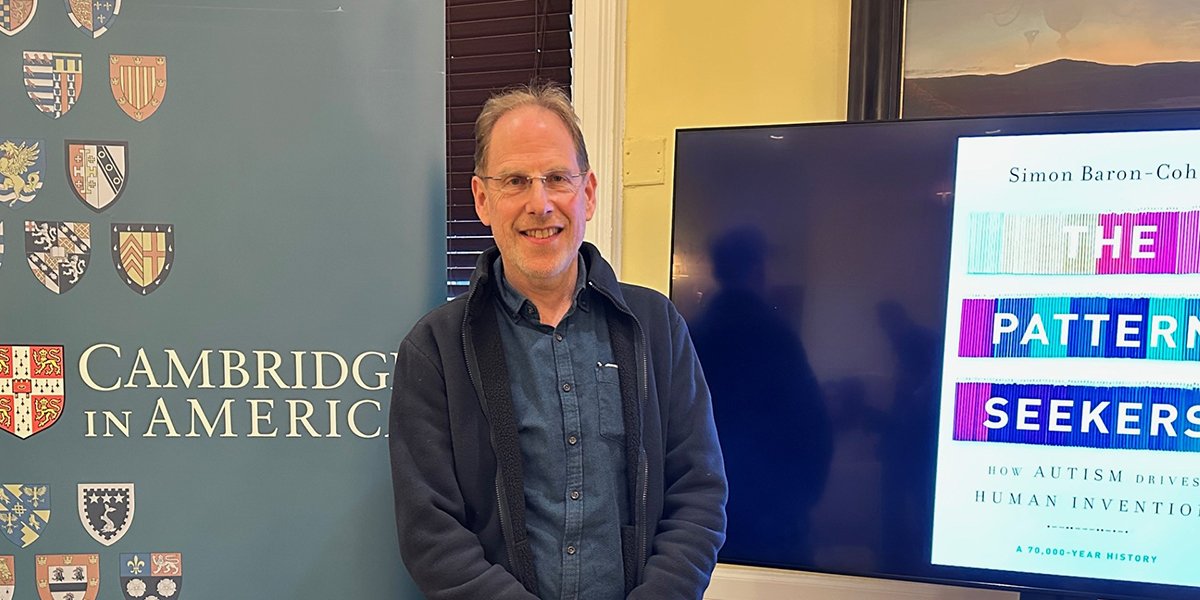
Professor Sir Simon Baron-Cohen: The Puzzle and Potential of Neurodiversity
A conversation with the pathbreaking Cambridge University Psychologist
On Wednesday, March 26, 2025, Professor Simon Baron-Cohen spoke before a packed audience of Cambridge alumni and guests in New York City. His latest book, The Pattern Seekers: How AUTISM drives HUMAN INVENTION, draws readers into a world of different-thinking children and adults, making the case that autism is fundamental to our creative and cultural history.
From his brain-based theory of human cruelty and kindness to his groundbreaking work on the link between autism and invention, the award-winning psychologist has amassed a body of work on human cognition, breaking new ground in the way society understands autism, psychology, and the human condition.
You’ve spent some 40 years researching autism, how has your understanding evolved?
I would say that my understanding, our understanding, has got deeper and broader. So, if we start with the broader part, we used to see just one slice of the autism spectrum, and now we see a much wider group of people who have the diagnosis of autism. It’s gone from very rare to very common, and that’s a massive change. 40 years ago, autism was 4 in 10,000 people, and today it’s 1 in 36.
Why is that?
Apart from better recognition and greater awareness, we have also expanded the definition to include people who do not have an intellectual disability. Back 40 years ago we were mostly seeing autistic people who also had an intellectual disability. Today we see autistic people without any intellectual disability.
What is the focus of your latest book, Pattern Seekers: How AUTISM drives HUMAN INVENTION?
The first 20 years of my career, when we were mostly focused on autism as a disability, and how they struggle with relationships and communication, we were missing the strengths that autistic people have, and how they are different. In my book I single out that one of the areas of strength in autism is a special kind of pattern recognition: ‘If I take something and I do something to it, then I get a particular outcome.’ Autistic people are fascinated by such causal relationships in the world, trying to understand how things work. That’s the drive for human invention, and I produce a lot of evidence that autistic people have been contributing to human progress. If we look at what defines human beings, it’s that we are constantly inventing, and autistic people have a strong aptitude for understanding systems.
What do you believe people may be missing when it comes to understanding autism?
We should focus on what autistic people can do better than non-autistic people. So instead of seeing them just as having disabilities, we can see them also as having differences, some of which are strengths and talents. Yet, then you look at how society treats autistic people, and we see that we still haven’t got to the point where autism is accepted. Many of them feel excluded and the victims of discrimination and stigma. They have huge potential to contribute to the world. It’s time for our society to be more welcoming to autistic people and their families and ensure that their basic rights, to education, health, employment and justice, are protected.
